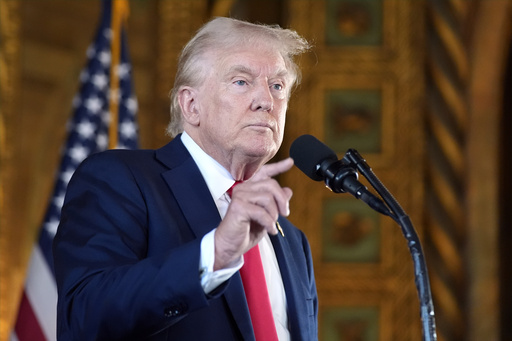A year after a grand jury in Georgia issued indictments accusing Donald Trump and others of unlawfully attempting to overturn the 2020 presidential election in the state, the case has hit a standstill and is unlikely to go to trial before the end of this year.
Fulton County District Attorney Fani Willis brought forth the indictment against Trump and 18 others, using Georgia’s anti-racketeering law to allege their involvement in a scheme to undermine the will of the state’s voters following Trump’s narrow loss to Democrat Joe Biden.
The indictment, which spans nearly 100 pages, contains 41 criminal counts and names high-profile individuals such as Mark Meadows, Rudy Giuliani, and Sidney Powell. It accuses the defendants of violating the state’s anti-racketeering law and highlights 161 alleged acts to support the charge, asserting that multiple individuals engaged in various crimes to challenge Trump’s electoral defeat.
While Willis’ team initially saw successes in the case, claims made by one of Trump’s co-defendants earlier this year have led to delays and could potentially derail the prosecution.
The indictment involves charges related to a phone call between Trump and Georgia Secretary of State Brad Raffensperger, where Trump pressured the official to “find” votes, as well as allegations of coercing Republican electors to falsely declare Trump’s victory.
Several individuals charged alongside Trump have pleaded guilty to lesser charges, including Scott Hall, Sidney Powell, Kenneth Chesebro, and Jenna Ellis. However, the case took a turn when salacious allegations emerged regarding a romantic relationship between the prosecuting attorney and a colleague.
An extraordinary hearing revealed intimate details of the relationship, causing a temporary halt in proceedings. The defendants have appealed the judge’s ruling on the potential conflict of interest and the case is pending in the Georgia Court of Appeals.
Looking ahead, the uncertainty looms over the case as potential further delays could stem from appeals to higher courts and the implications of the upcoming general election, where Trump is the Republican nominee. The recent U.S. Supreme Court ruling granting former presidents immunity for official acts further complicates the legal landscape in this ongoing legal battle.
Should the case proceed, Trump’s lawyers are likely to invoke the Supreme Court ruling on presidential immunity to defend against the prosecution led by Willis.


